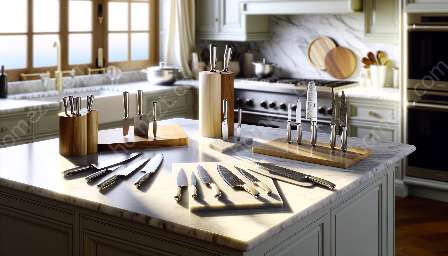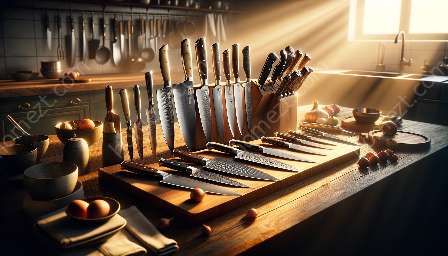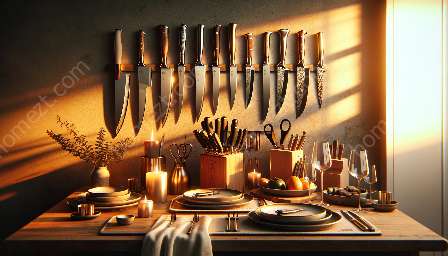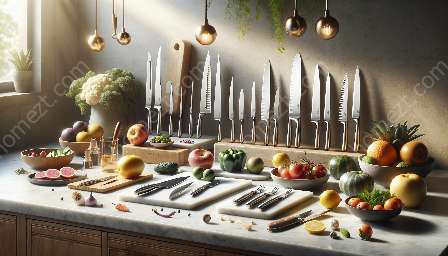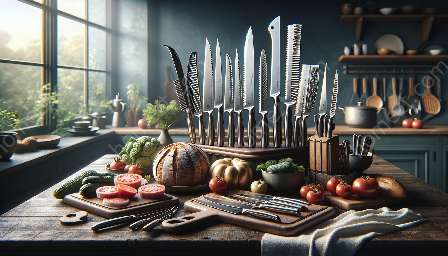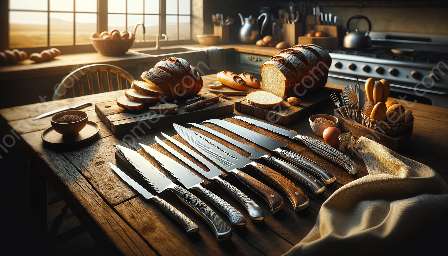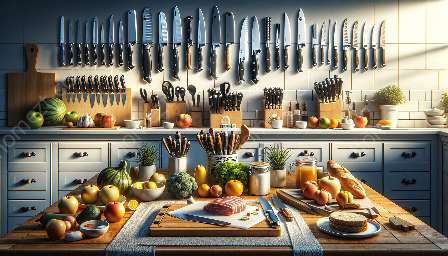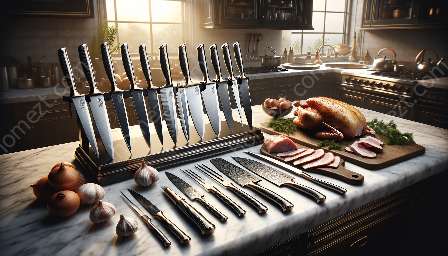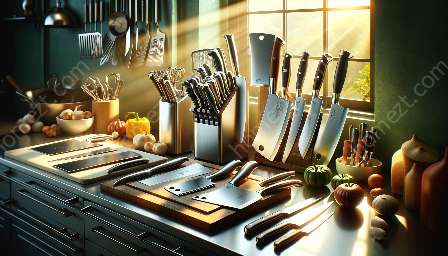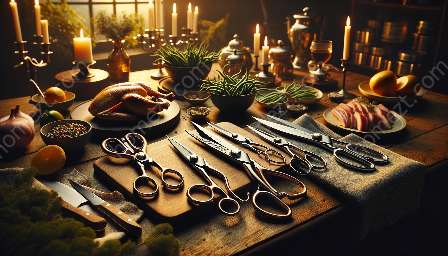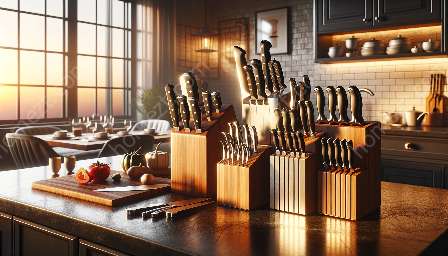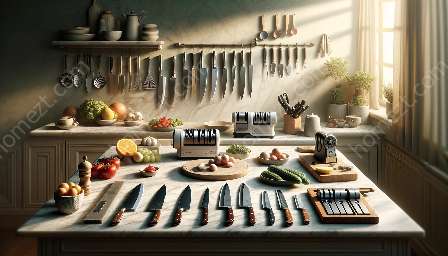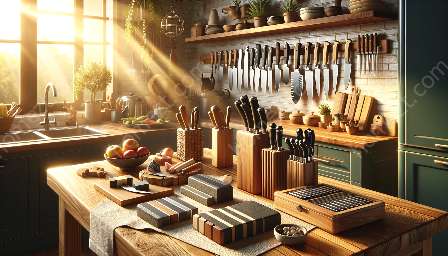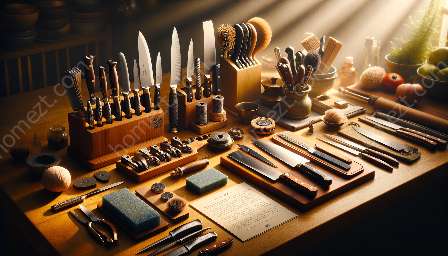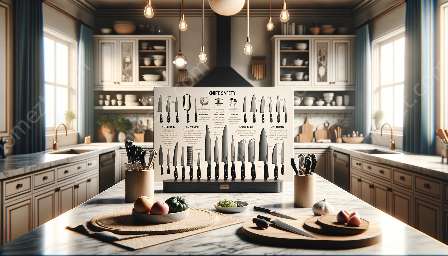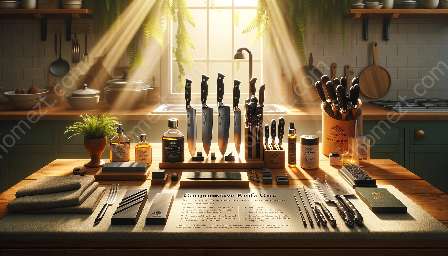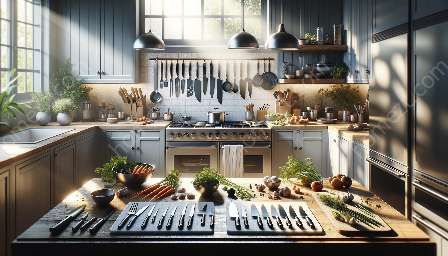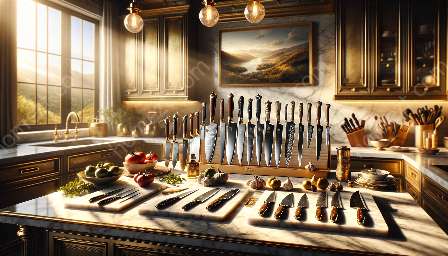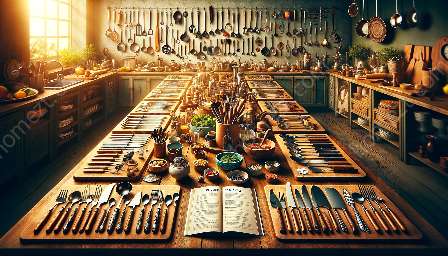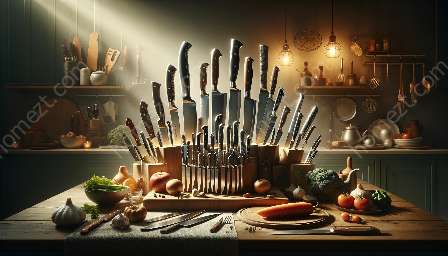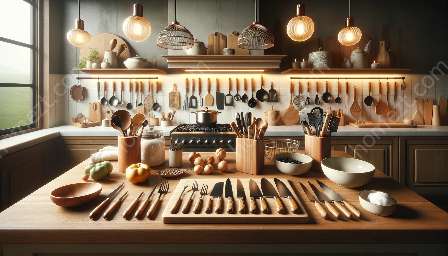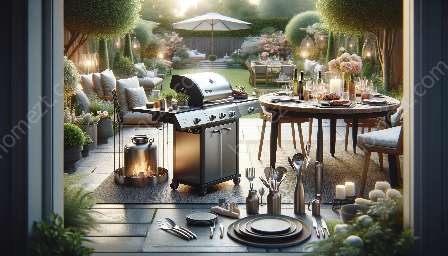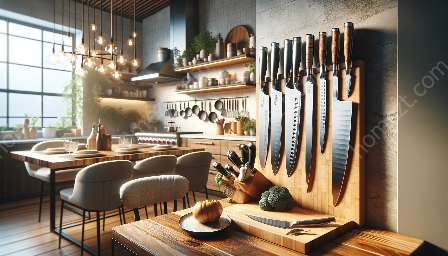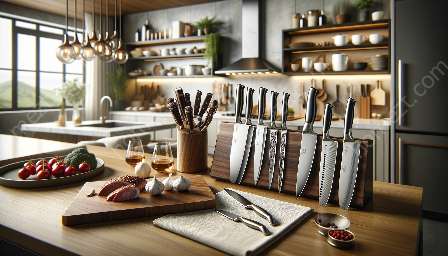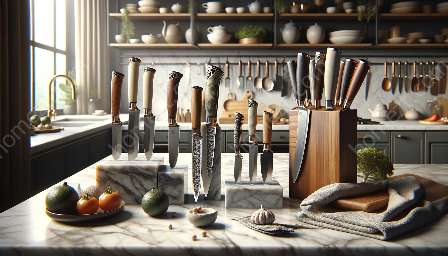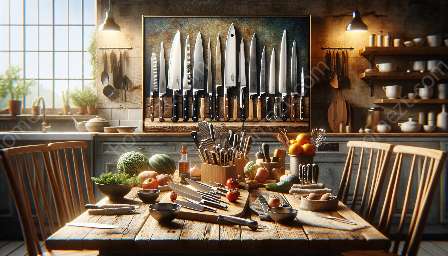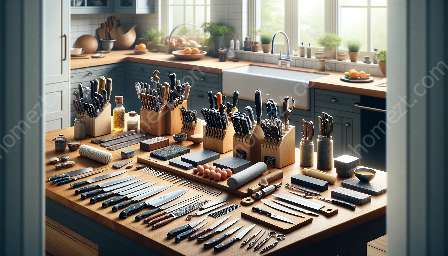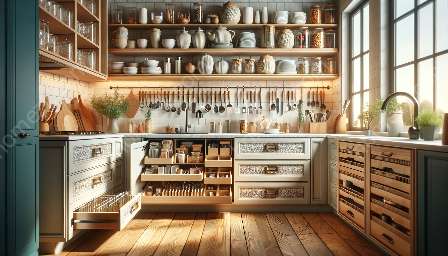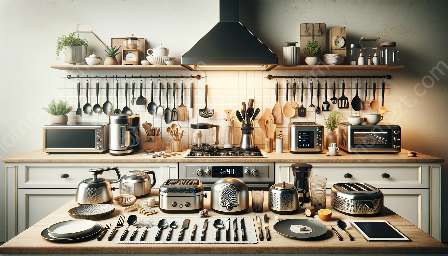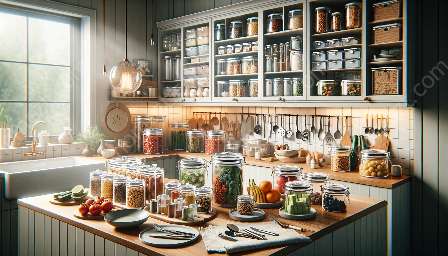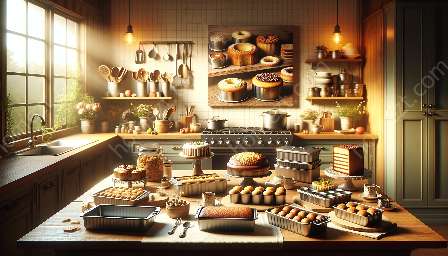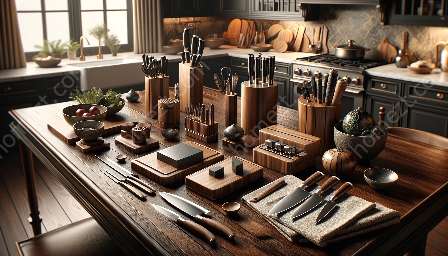Proper knife care is crucial for maintaining the sharpness, performance, and longevity of your kitchen knives. In this comprehensive guide, we will delve into the best practices for knife care, focusing on maintenance, storage, and sharpening, with a particular emphasis on how it's compatible with cutlery and kitchen & dining.
Knife Maintenance
Regular maintenance is essential for keeping your knives in optimal condition. Here are some key techniques for maintaining your kitchen knives:
- Handwashing: Always handwash your knives with mild detergent and warm water. Avoid soaking them or putting them in the dishwasher, as this can cause damage to the blades and handles.
- Drying: Thoroughly dry your knives immediately after washing to prevent corrosion. Use a soft cloth to wipe them dry, and store them in a knife block or on a magnetic strip.
- Sharpening: Regularly sharpen your knives to maintain their sharp edge. Use a sharpening stone or honing steel to keep the blades in top condition.
- Knife Oil: Apply a thin layer of knife oil to the blades to prevent rust and corrosion. This is especially important for carbon steel knives.
Knife Storage
Proper storage is essential for both safety and maintaining the edge of your knives. Consider the following tips for storing your kitchen knives:
- Knife Block: Store your knives in a knife block to protect the blades and prevent accidents. Make sure the block is dry and clean to avoid bacterial growth.
- Magnetic Strip: A magnetic strip is a space-saving and visually appealing way to store your knives. It keeps the blades safely secured and easily accessible.
- Knife Sheath: For portable storage, consider using knife sheaths to protect the blades and keep them safely stored in drawers or when traveling.
- Angle: When using a sharpening stone, maintain a consistent angle of approximately 15-20 degrees for Western knives and 10-15 degrees for Asian knives.
- Technique: Use smooth and controlled strokes when sharpening your knives to achieve a consistent and sharp edge.
- Honing: In addition to sharpening, regularly hone your knives with a honing steel to straighten the edge and maintain sharpness.
Knife Sharpening
Regular sharpening is essential for maintaining the cutting performance of your knives. Here are some key points to consider when sharpening your kitchen knives:
By following these knife care practices, you can ensure that your kitchen knives remain in top condition, providing precise and efficient cutting performance for years to come. These practices are not only vital for the maintenance of cutlery but are also ingrained in the kitchen & dining experience, ensuring the safety and quality of food preparation.

